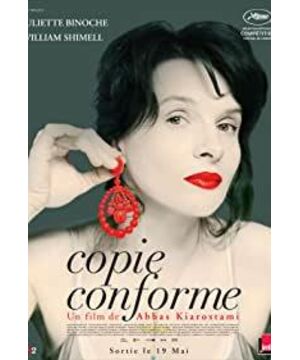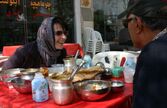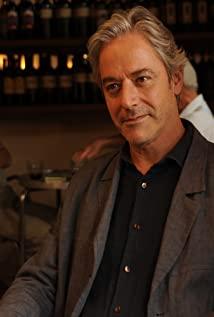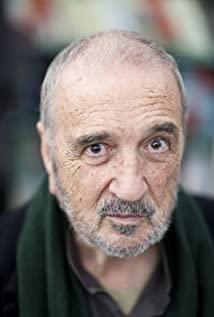I thought I had a fever.
I do not.
I thought I was in love.
I do not.
I thought I won.
I lost
From Abbas' collection of poems "A Wolf Is Watching"
Abbas, first a poet, then a film director. But most fundamentally, he is a life experiencer. Compared with Tarkovsky, another film master, Tarkovsky's social and historical reflection behind the open frame is replaced by individual, introverted thinking here. If a great architect is used as a comparison, then the old tower is Le Corbusier, revolutionary and inspiring, and its "language" is broad and inclusive enough to influence every generation of filmmakers since him. Abbas, on the other hand, is Louis Barragan, who is more about thinking about individual perception, memory, and spiritual introversion. The language of film comes from dissolving individual life experience and cannot be replicated.
"Legal Copies" mainly revolves around the event that a British writer James Miller came to the Italian city of Tuscany to give a lecture for his new work "Legal Copies". The lecture in the first act explained the main point of the male protagonist, which of course is also the issue discussed in the movie, about the relationship between "original" and "copying". At the same time, the heroine, an ordinary middle-class woman with a rebellious son, has an undisguised love for this seemingly free and knowledgeable writer. Due to her son's impatience, the heroine left in a hurry before she could finish the lecture, leaving a contact number to the writer's friend, hoping to meet again.
In the second act, the heroine takes her son to a burger restaurant for dinner. In the face of her son's acute problems, the heroine has been escaping from facing the most basic desires in her heart. A typical mid-life crisis, with the charm still present but being dragged down by life. I have been giving but also looking forward to gentle reliance and a certain degree of recognition.
In the third act, the writer and the heroine meet again in the antique shop opened by the heroine. The writer's discussion of the dialectical discussion of things and the requirement of openness to the communication environment and topics make the heroine fall into a passive position at a loss. Immediately, I proposed to drive the writer to see the scenery. The dialogue between the two people in the car was mostly binary opposition, hedonism, existentialism, the importance of artworks to individuals, the beauty of individual differences, the importance of context and perspective... This stage The relationship between the two, like the discussion of the topic, is a binary opposition. They all think about it all from their own standpoint. The writer believes that "the meaning of existence is pleasure", but the heroine scoffs at this. Obviously, it is difficult for a middle-aged woman who has been dragged down by trivial life to understand the inner world of a scholar who believes in liberalism, is self-centered and immersed in metaphysical discussions. But if such discussions continue, I am afraid that the film cannot stop with Abbas.
The wonderful setting is that when the film is about halfway through, due to a misunderstanding in different contexts, the writer "became" the heroine's emotionally absent husband for 15 years. Because of this misunderstanding, the antagonistic relationship between the male and female protagonists began to have the possibility of blending, and the relationship between the two changed from a desire to be understood and a desire to talk about it to a kind of dissociation. The concept and experience of the heroine began to make the writer's point of view lack the support of facts, and the writer also began to become less firm about his own ideas when he accepted the advice of an elder. At this time, reason and sensibility are compromising and accepting each other. Loving couples begin to appear intermittently in the film, suggesting a certain harmonious present. The author's previous emphasis on enjoying the moment, in practice, only satisfies the needs of his inner arrogance. He does not bring happiness to himself in time, but also to the closest people around him.
In the last scene, coming to the origin of this 15-year relationship, the heroine recklessly recalls the 100% beauty and 100% reasonableness of the beginning. But in the repetition of life (reproduce), enthusiasm diminishes. Initially, the discussion of originality and reproduction also continued to the level of life, and the so-called cognition of originality and reproduction is often limited to the perspective of observation. Is the originality and reproduction of life really important? Maybe the important thing is the life experience in the individual context. Who are you? what do you want? What is meaningful to you? Nurturing your life is like nurturing a baby. Put on lipstick, put on earrings, and face your true desires.
"If we were more tolerant of each other's shortcomings, we wouldn't be so lonely." The heroine lay on the floor and said to the writer affectionately. The writer went to the toilet to wash his hands, observed himself continuously, and left. Everything dissolves in the urban landscape of Tuscany outside the window. At this time, the city seems to have the power of infinite tolerance.
View more about Certified Copy reviews











